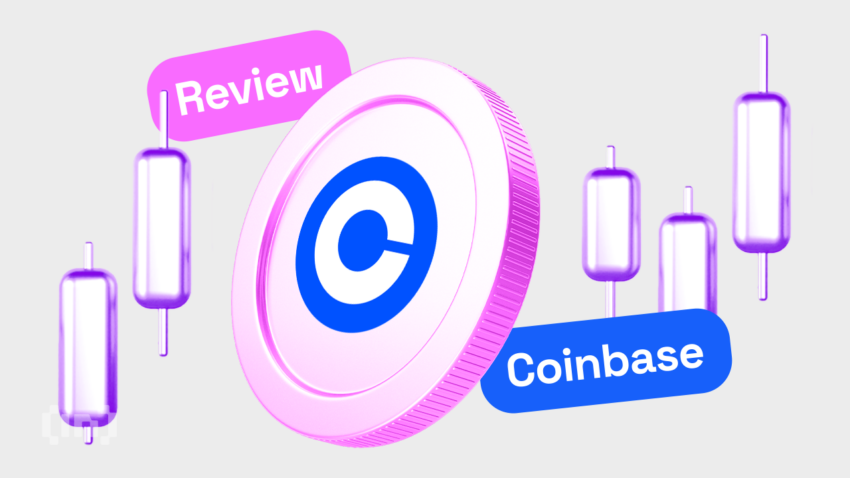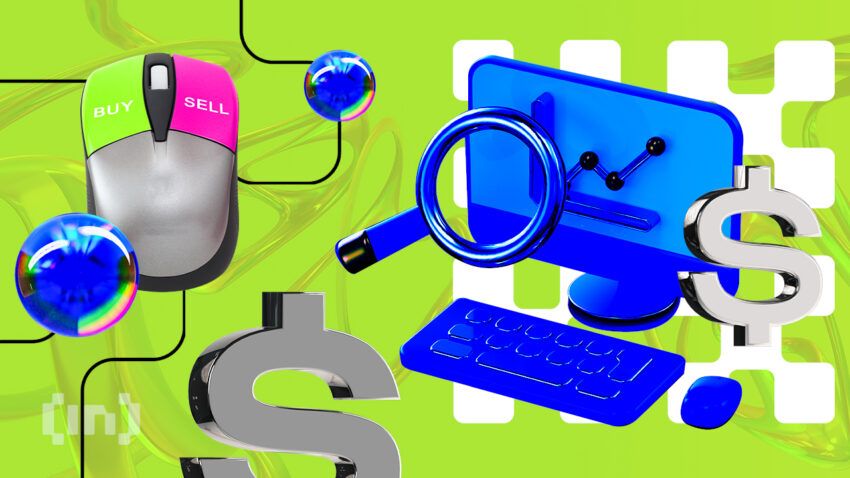In our thorough comparison, we’ll carefully assess various alternatives to Coinbase, catering to users’ preferences and needs. We’ll cover the best options for users in the United States, pinpoint platforms renowned for their low trading fees, and delve into privacy-centric alternatives that prioritize user anonymity, all while eliminating the need for KYC verification.
This detailed exploration will equip you with a comprehensive understanding of the alternatives available to suit your specific requirements in the cryptocurrency space.
Why switch from Coinbase?

Coinbase maintains its prominent position among the leading cryptocurrency exchanges. Established in 2012, the company has established a commendable track record in terms of security and boasts a highly user-friendly interface. It continues to offer a diverse array of payment options, encompassing bank transfers, credit cards, PayPal, wire transfers, and more.
However, in this year, Coinbase also grapples with its own set of shortcomings. Notably, the exchange has a history of service disruptions during periods of extreme market volatility, as was evident during the crypto surge of 2017, with frequent outages occurring approximately once every three days.
Additionally, over the past few years, many users have opted to transition away from Coinbase for various reasons:
- Coinbase imposes one of the cryptocurrency industry’s highest and most complex spreads for crypto-to-crypto and fiat-to-crypto transactions, resulting in added user expenses.
- Privacy-focused traders may find Coinbase unappealing due to its stringent verification and security measures, prioritizing compliance over anonymity.
- If you seek a wide selection of tradable cryptocurrencies, Coinbase may not align with your preferences. The platform lacks diversity, particularly for those interested in trading lesser-known digital assets.
In 2025, these factors should be carefully considered when evaluating Coinbase as an exchange platform.
What are alternative Coinbase platforms?
You might not be aware of these noteworthy alternatives to Coinbase, each offering unique features and services that cater to different aspects of cryptocurrency trading and investment. This section delves into some of the most popular Coinbase alternatives.
1. KuCoin
KuCoin, a cryptocurrency exchange based in Hong Kong, is relatively newer than established players like Coinbase and Kraken. It was launched in August 2017, coinciding with the significant surge in cryptocurrency interest and investment, often referred to as the crypto boom.
However, it has already marked its presence among the top cryptocurrency exchanges around the world. One of the foremost factors working in favor of KuCoin’s rapid ascension to the top is its sound technological infrastructure, coupled with a feature-rich trading platform that appeals to inexperienced and advanced traders alike.
It’s one of the best Coinbase alternatives today if you’re interested in trading lesser-known digital assets, and not just the big ones. In fact, Kucoin supports over 700 cryptocurrencies with 1200+ trading pairs.
Pros
- A wide range of cryptocurrencies
- Low fees for trading activities
- User-friendly interface on KuCoin
- Operates worldwide
- Access to sophisticated trading tools
- An active presence on various social media platforms, including a vibrant Twitter (X) presence
- Swift and efficient alert system for potential threats
Cons
- Absence of licensing in the United States
- Restricted options for buying with fiat currency
2. Kraken

Established in 2011, Kraken is a leading U.S.-based crypto exchange known for its security and customer service excellence. The exchange has expanded its offerings, supporting over 235 cryptocurrencies, making it an ideal platform for your diverse crypto trading needs. Kraken offers advanced trading features such as futures contracts and margin trading, appealing to seasoned investors. However, it’s worth noting that Kraken no longer offers staking in the United States due to SEC penalties.
Pros
- Top-tier security: Since its inception, the exchange has not experienced any major security breaches, a testament to its robust security protocols. The platform offers multiple layers of protection, ensuring the safety of user funds and data.
- Fiat currency support: The crypto exchange supports various fiat currencies for deposit and withdrawal. This includes USD, EUR, CAD, GBP, CHF, JPY, and AUD, providing users with versatility in managing their funds in various currencies.
Cons
- A few restrictions on global reach: While Kraken boasts a significant global presence, operating across various continents, including Africa, Asia, Europe, North America, Oceania, and South America, it’s not without its limitations. The platform is inaccessible to all U.S. residents, specifically excluding the District of Columbia, New York, and Washington. Moreover, it’s unavailable in several countries, including Afghanistan, Cuba, Guinea-Bissau, Iran, Iraq, North Korea, and Tajikistan.
3. Bitfinex
With one of the highest average daily trading volumes in the industry, Hong Kong-based Bitfinex can rightfully claim its spot among the best Coinbase alternatives in 2025. Its popularity stems from various underlying perks for users, the foremost among which is its feature-rich trading venue.
The platform is designed to have something for all kinds of users. Newbies, for example, will find the interface a lot simpler than some other alternatives, whereas the more experienced traders get a whole range of tools to execute their strategies, including advanced order types. However, it’s worth noting that Bitfinex was involved in a controversy, which included aspects of Swiss regulatory supervision and a previously undisclosed association with Tether Ltd.
Pros
- Advanced trading features: Bitfinex is known for its advanced trading tools and deep liquidity pool, making it appealing to professional traders.
- Wide range of crypto support: Supports a broad array of cryptocurrencies, offering traders various options for trading.
- Competitive fees: The maker-taker fee schedule is generally lower than many other major exchanges.
- Margin trading with leverage: Offers margin trading with leverage up to 3.33x.
Cons
- Regulatory problems: Past controversies and regulatory challenges, particularly about its association with Tether, have raised concerns about transparency.
- Limited accessibility: Not available to U.S. residents, limiting accessibility for a significant market.
4. CEX.io

CEX.io is another early move that has been around since 2013. It’s a UK-based global exchange serving cryptocurrency traders in almost every country. With over a million users worldwide, CEX.io offers a distinctively user-friendly combination of web and mobile apps.
You can register on the platform using only your email ID. However, because CEX.io is a crypto-cum-fiat exchange, you must abide by a relatively stringent set of KYC and AML (anti-money laundering) regulations. On that count, it is not nearly as privacy-friendly as alternatives such StormGain.
Pros
- Fees: Low maker and taker fees
- Availability: CEX.io is available across almost all regions and countries.
- Brand value: One of the oldest and most trusted platforms.
- Listings: CEX.io has a wide range of coins and tokens listed.
- Brokerage services: CEX.io offers brokerage services for new users to buy and sell cryptocurrencies relatively simply.
Cons
- You should always be careful about hidden charges while using their brokerage services. It can be expensive at times.
- The verification process is rather extensive and might tick you off if you’re looking for better privacy.
- The GBP market is not as liquid as you might expect.
5. StormGain

The exchange has carved out a niche in the competitive crypto market. Renowned for its extensive range of trading options, the Coinbase alternative presents a compelling replacement to mainstream platforms like Coinbase. What sets StormGain apart is its strong emphasis on user privacy, eliminating the need for KYC verification. Users can conveniently sign up with just an email address, streamlining the process and enhancing privacy.
In 2025, StormGain has broadened its cryptocurrency support to include a diverse array, such as Bitcoin, Ethereum, Dogecoin, Shiba Inu, Litecoin, Ripple, Tether, and more. This expansion reflects its commitment to catering to a wide range of investor preferences.
One of StormGain’s most notable features is its leverage trading, now offering an impressive x500 multiplier. This option significantly amplifies trading potential, allowing traders to command positions far exceeding their account balances. However, such high leverage also introduces heightened risks, underscoring the need for prudent risk management.
Beyond trading, StormGain has innovated with additional revenue streams. Its cloud-based Bitcoin mining allows users to mine cryptocurrency without the hefty investment in hardware traditionally associated with mining. The platform also incentivizes users through a ‘Refer a Friend’ program, rewarding referrals and bolstering its user base.
Pros
- Diverse trading options: StormGain supports many cryptocurrencies, including Bitcoin, Ethereum, Dogecoin, Shiba Inu, Litecoin, Ripple, Tether, and more, catering to various investor preferences.
- High leverage trading: Offers leverage up to x500, providing significant trading potential for those willing to take on higher risk.
- Additional revenue streams: Features like cloud-based Bitcoin mining and the “Refer a Friend” program allow users to earn additional income without substantial hardware investment.
- Educational resources: Offers educational materials, including tutorials and webinars.
- Demo account availability: Provides a demo account with 50,000 USDT in virtual funds, allowing new traders to practice without risk.
Cons
- Lack of regulatory oversight: Not regulated by a trusted financial watchdog, which might concern users who prioritize regulatory compliance.
- Geographic restrictions: Not intended for use in the European Union and faces hurdles in several countries, including the U.S. and Japan.
Which Coinbase alternative is best for you?
KuCoin excels as a Coinbase alternative for traders, particularly for trading rare cryptocurrencies. Additionally, StormGain distinguishes itself with x500 leverage trading, enhancing trading capabilities, though it involves increased risks. Kraken is known for its robust security and exceptional customer service, supporting over 235 cryptocurrencies and advanced futures and margin trading options.
Choosing the right alternative to Coinbase depends on your individual preferences and requirements, so thorough research is crucial before making any form of investment decision.
Frequently asked questions
What are some Coinbase alternatives?
How do these alternatives to Coinbase compare in terms of fees and features?
Are there any Coinbase alternatives that focus on specific features or services?
Disclaimer
In line with the Trust Project guidelines, the educational content on this website is offered in good faith and for general information purposes only. BeInCrypto prioritizes providing high-quality information, taking the time to research and create informative content for readers. While partners may reward the company with commissions for placements in articles, these commissions do not influence the unbiased, honest, and helpful content creation process. Any action taken by the reader based on this information is strictly at their own risk. Please note that our Terms and Conditions, Privacy Policy, and Disclaimers have been updated.




